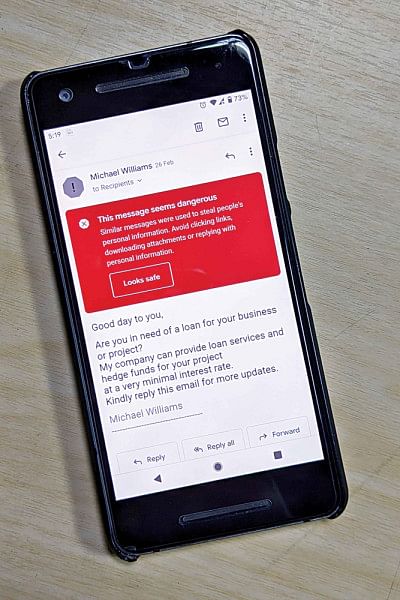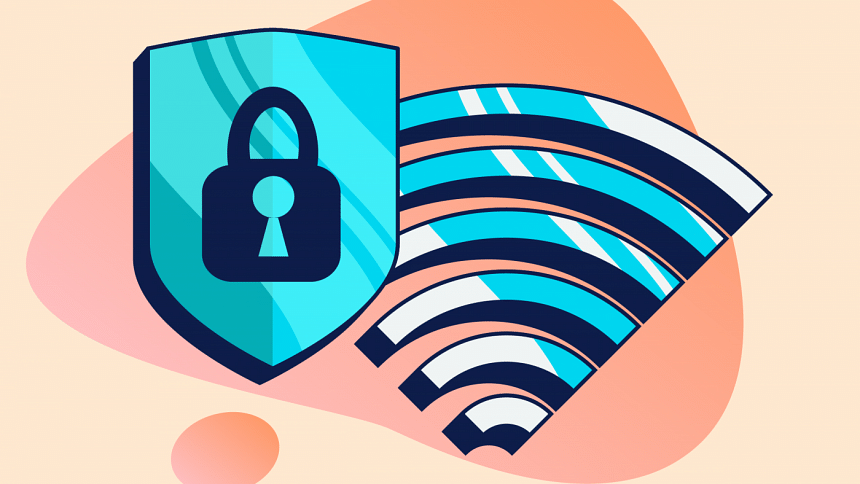Internet Safety for Parents

April 2020. The whole world is struggling to deal with the Covid-19 and the pandemic that resulted from it. Nationwide lockdowns are in session to prevent the spread of the virus. Flights have been grounded, the streets are empty, and the global economy is collapsing fast. At the same time, scientists and researchers are working day and night to learn more about the Covid-19, and find a possible cure for it.
It's a worldwide effort; people are collaborating across borders to find a solution to the problem at hand. No one knows how long it will take to find one. And yet, while scientists, researchers, doctors, and other experts of the field are struggling to provide an answer, my respected father, a commercial manager in his late fifties, is confident of a certain "medicine" for the disease. How did he learn about it? From the internet, of course. More specifically, he came across a post on Facebook talking about this particular medicine and how it's a guaranteed lifesaver.
But this isn't anything new. Many parents have fallen prey to online advertisements, scams, chain mails, fake news posts and more for quite some time now. And this will go on until they're made aware of the dangers of the internet, and how they can keep themselves safe from them.
How are our parents being exposed to these ads, scams, and fake news?
Unlike our parents, our generation grew up with the internet. It may have existed before we were born, but it became more accessible as we were growing up. We, therefore, had the opportunity to explore whatever the internet had to offer, have seen it evolve, and were made cautious of such ads or scams from a young age.
Parents, on the other hand, were using the internet in a very limited capacity, until smartphones came along and access to the World Wide Web was made easier. Unlike us, they weren't allowed to ease into the wonders of the internet and instead, were straight-up pushed into it. They had to adapt. As a result, it's taking a long time for them to realise its dangers.
Taqbirul Islam*, a consultant at an NGO based in Bangladesh, recalls the time when his mother opened her first Gmail account. "She wasn't new to the internet," says Taqbirul. "But this was her first experience with an email account of her own. And once she started signing up for different social media platforms, she started receiving spam emails. She even replied to a few of those, in one of which she very clearly explained to the sender that she couldn't take a prince's money without a reason."
Thankfully, Taqbirul was able to handle the situation before it caused any severe damage. But this is indeed a problem. The sudden exposure to the features of the internet can be quite overwhelming for our parents. After all, not all of them are aware of how many websites and platforms work, and how they're able to manipulate people through scams.

Shouldn't parents know better than to believe everything on the internet?
The internet does a pretty good job of making fake news seem legitimate. The real problem, however, starts when these posts are shared by people you actually trust. Take the case of Rameesa Jameel, a senior at North South University, for example. Her father became obsessed with the idea that kalo jeera (black cumin) oil can work as a cure for the coronavirus after this was shared with him by one of his siblings. "He started to believe that this was the only cure for the disease," says Rameesa. "He even refused to get vaccinated until I intervened and convinced him into doing so."
Rameesa's father fell victim to a WhatsApp chain message that was being spread around at that time; a common way of circulating misinformation. And we're not saying kalo jeera does not have healing properties. But perhaps this wouldn't have had such a big effect on her father had it not been shared by one of his close ones.
The chain message takes over the internet when your parents see their friends, relatives, and colleagues are sharing the same thing, they too start to believe in it. They fall victim to a kind of emotional manipulation, and in trying to do good, end up doing the opposite.
My parents believe everything they see online. What should I do?
If your parents tend to believe everything that's on the internet, you should question them regarding the source. You could also ask them to Google whatever the post is about, and see the results. Usually, if it's a fake news story, the top results will make it clear to them.
You don't have to directly challenge them or point out that they're wrong. Do it in a subtle manner and in a way that will help them learn about these dangers. If they're more inclined to whatever news story they read online, ask them to cross-examine it with multiple and verified news sources.
Also, ask them not to judge a news piece by its headline. Tell them to read the whole article. Beyond satire, there are many articles out there intended to sound absurd but are in no way real. It's also mentioned in these articles that they're not to be taken seriously. Besides, many news stories are basically click baits. They have a weird title just to grab the attention of the general audience. Once you open the article though, it's an entirely different perspective.
In all fairness, there's only so much that concerned authorities can do in this regard. Facebook and Twitter use AI-driven algorithms to detect and alert users of fake news or scams. They're yet to implement this system in Bangladesh and for the Bangla language. As a result, the stories in our country, especially those written in Bangla, slip past these detection programmes and reach our feeds without being flagged in any way.
Educating our parents regarding safe usage of the internet
Going back to my dad and his internet-inspired Covid-19 medicine. I was quick to realise that this is just one of the many things that he shouldn't put his faith in. Apart from fake science and medical posts, he would also devote a great deal of his time listening to people talk about their faiths, reading conspiracy theories, and "almost" buying things online. On top of that, he would download apps or software on his phone and computer from various third-party websites, and then complain to me as to why he was seeing so many ads and pop-ups, and why a cloned version of Google Chrome was set as his default browser.

So, in a way, I knew what I was dealing with, and approached it accordingly.
Firstly, I asked him to unfollow news pages that were not trustworthy, and suggested he verified news outlets to get his daily news. Then, I taught him how to crosscheck facts by simply looking them up online. I also asked him to avoid clicking on any sponsored posts that popped up on his feed. I showed him how to install and uninstall software, and how he can avoid agreeing to certain terms and conditions by simply unchecking a couple of boxes. And I told him he shouldn't share personal information on messaging apps or forms.
Last but not the least, I specifically explained to him why he shouldn't let the internet manipulate him into believing certain things, and that if he needed, he could ask me about the legitimacy of a story and I'd be happy to help him out. It's the least I can do from my end. And this is probably the only way right now to help them understand and deal with the dangers of the internet. Formal training isn't always the right way to go. They'll have to learn about some of these dangers to know and understand the consequences.
*Name has been changed for privacy
Faisal wants to be the very best, like no one ever was. To stay home is his real test, to survive the pandemic is the cause. Write to him at [email protected]

 For all latest news, follow The Daily Star's Google News channel.
For all latest news, follow The Daily Star's Google News channel. 



Comments